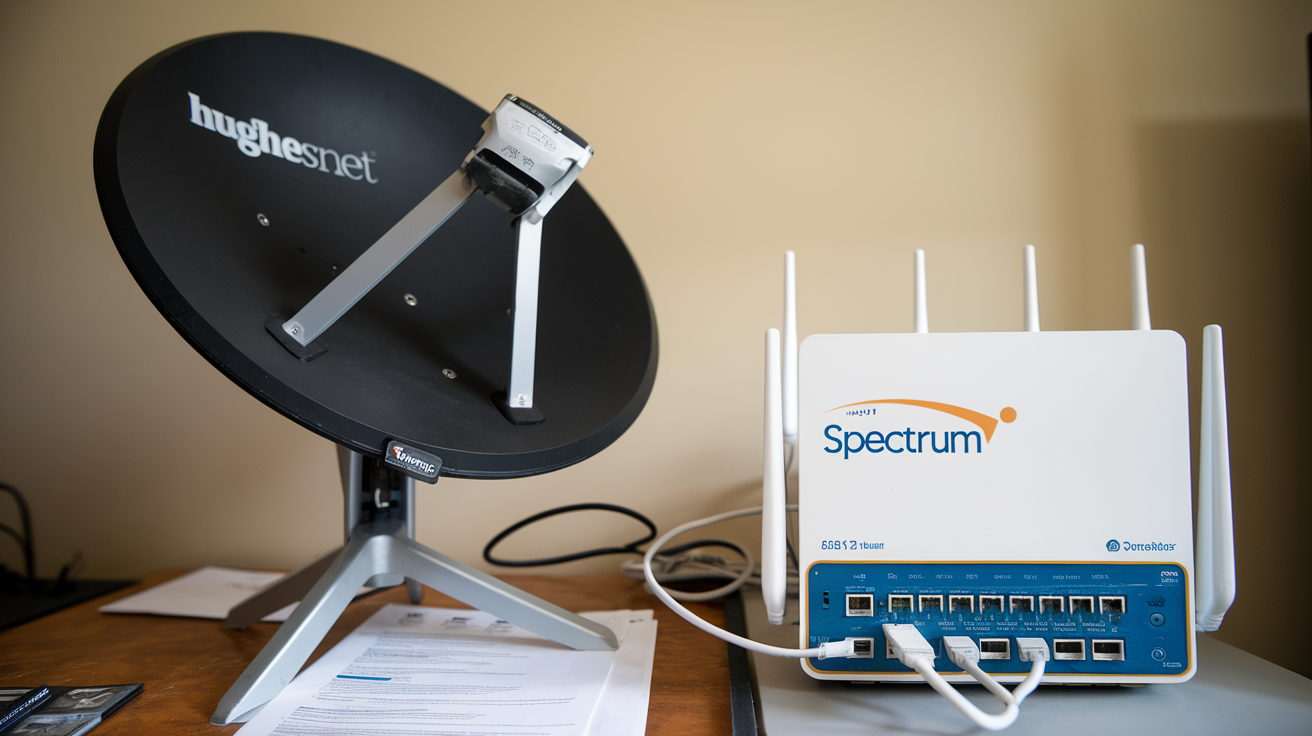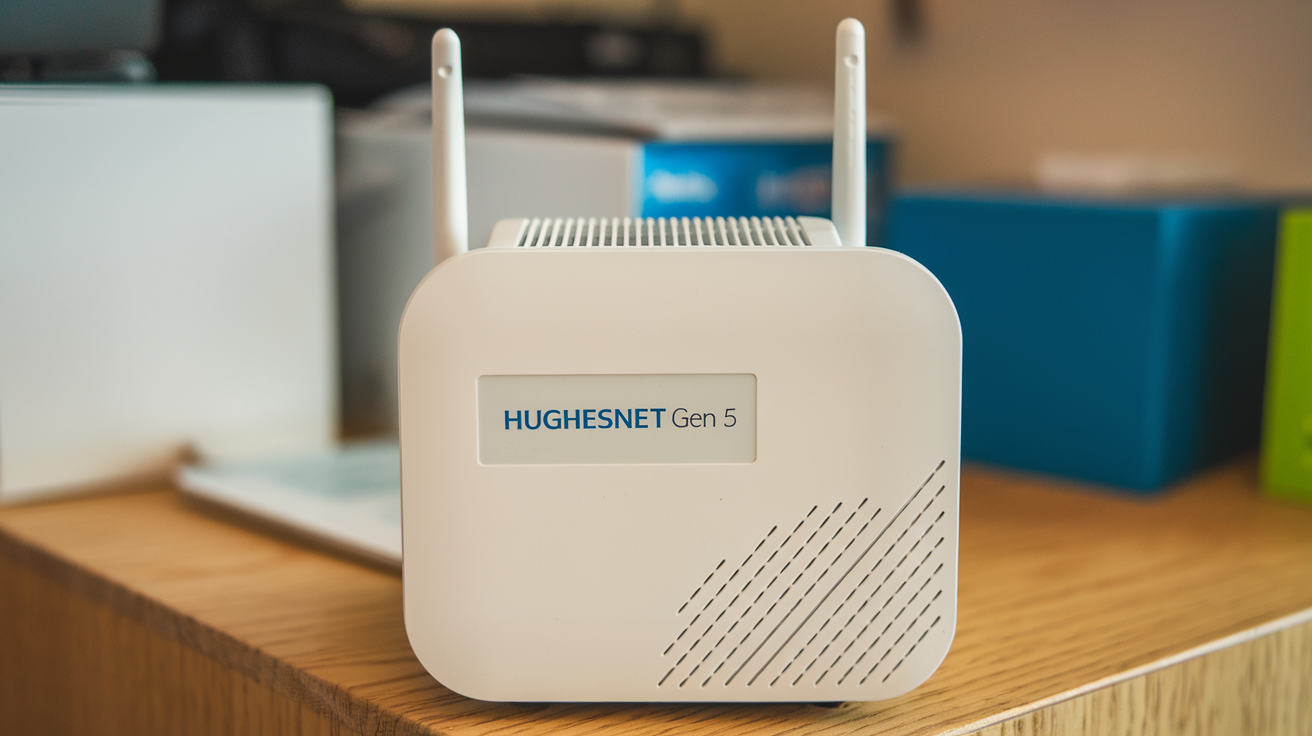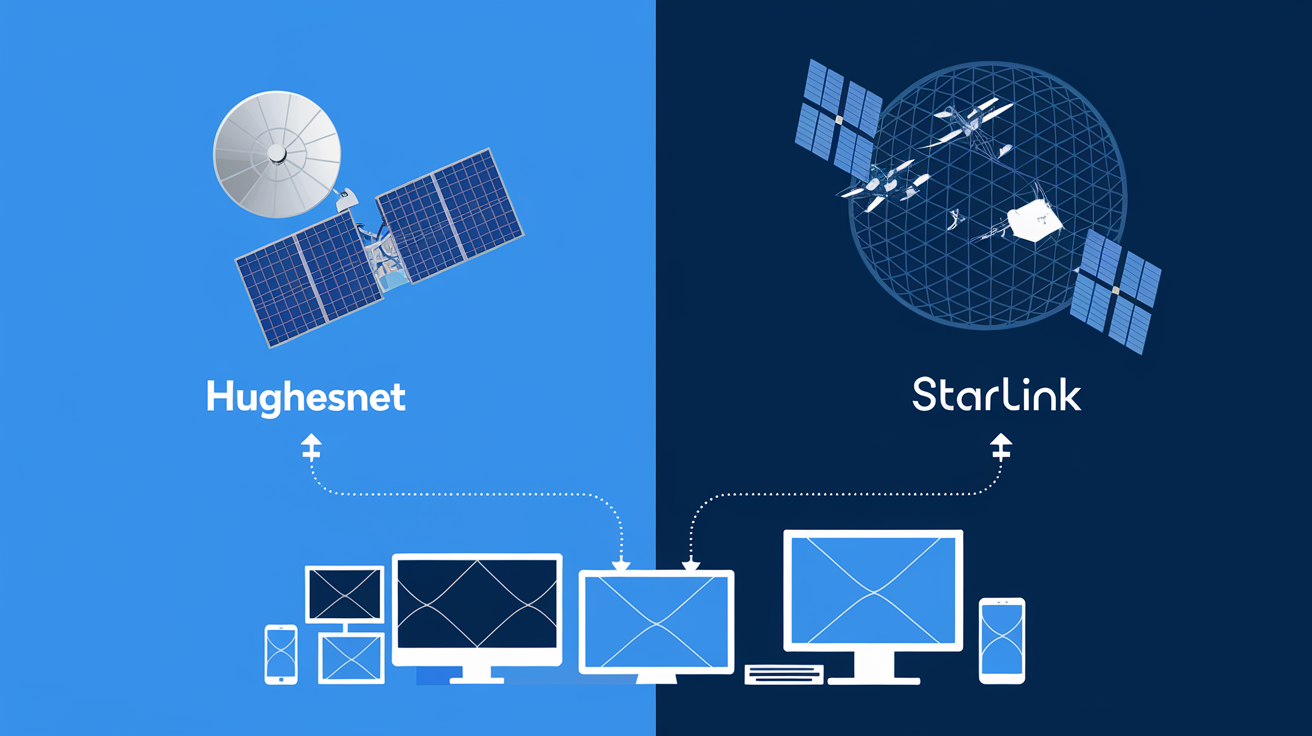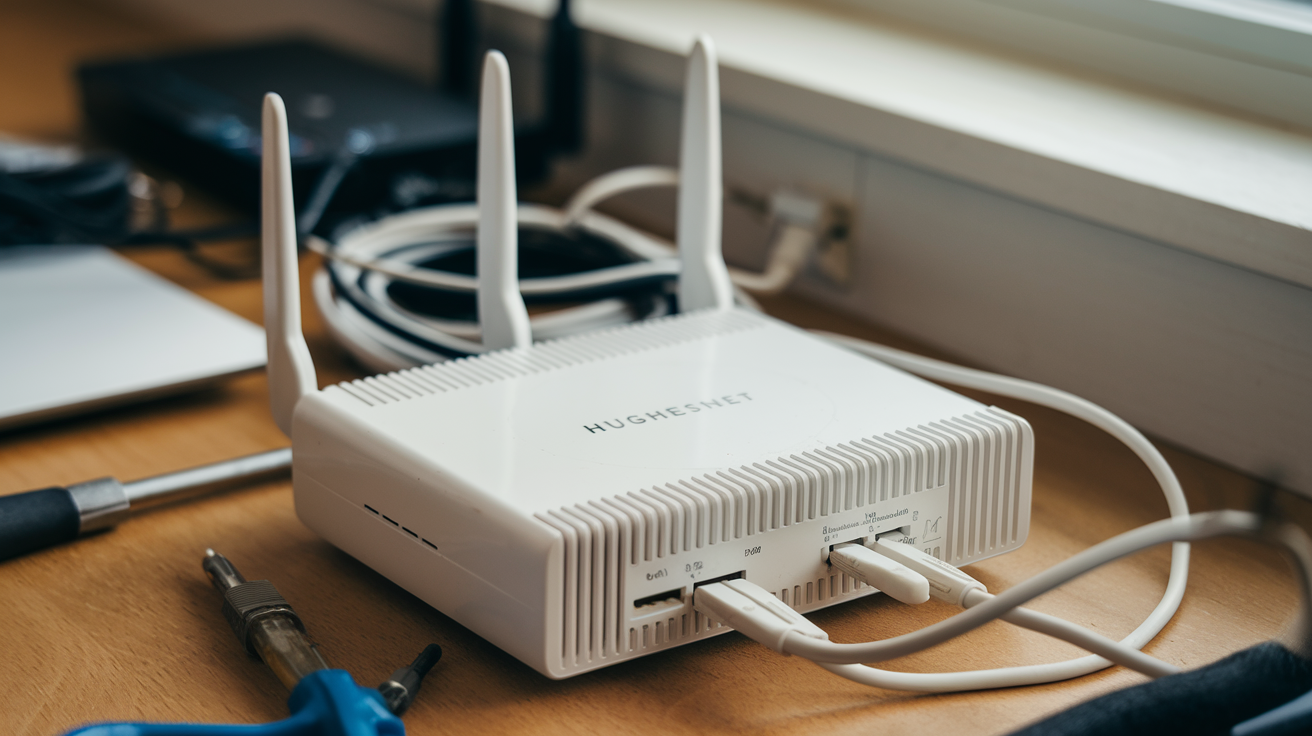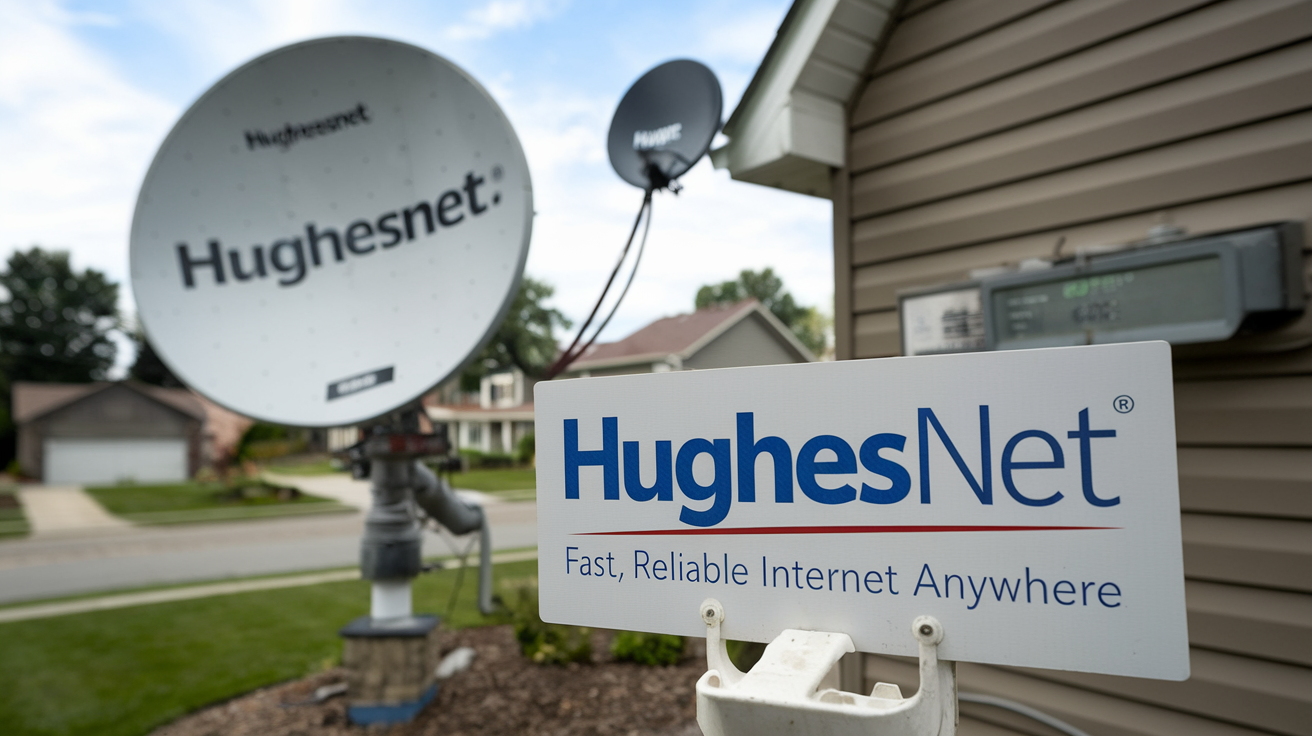
In today’s digital world, having good internet service is a must. It is no longer just a nice thing to have. While cities often have many internet providers and options, rural areas do not. Here is where satellite internet comes in. It helps connect these less-served places to the internet. HughesNet Internet is working to meet the needs of these communities. They provide satellite internet solutions to keep people and families connected.
Understanding HughesNet Satellite Internet Technology
Satellite internet has changed the way we connect, especially in places where regular wired networks do not go. Instead of using cables or fiber optic lines, satellite internet sends data from a satellite that orbits the Earth to a dish set up at your home. This technology goes beyond geographical limits, letting even the most far-away places enjoy high-speed internet.
HughesNet is well-known for satellite internet, providing service all over the United States, even in hidden spots where other internet providers have a tough time getting to.
The Basics of Satellite Internet
To set up a satellite internet connection, you need to have a satellite dish at your home. This dish sends and receives data from a satellite that is thousands of miles above the Earth. Companies like HughesNet place these satellites carefully to cover specific areas.
Getting your satellite dish in the right spot is very important for good internet service. For the best performance, the dish should have a clear view of the southern sky. It should not be blocked by trees, buildings, or anything else that may block the signal.
Keep in mind that even though satellite internet covers many areas, weather can affect the signal. Heavy rain or snow may obstruct the line of sight between the dish and the satellite. This can cause slower speeds or connection problems.
How HughesNet Delivers Internet to Your Home
HughesNet's satellite internet works by sending data through radio waves between your home and a satellite in space. When you want to visit a website or send an email, your request goes from your device to the HughesNet modem and then to the satellite dish outside your house.
The dish sends this request to a satellite in a fixed orbit, so it moves along with the Earth. This satellite acts as a go-between and sends your request to a Network Operations Center (NOC) on Earth. The NOC processes your request and sends back the information through the same path: from the satellite to the dish, to the modem, and back to your device.
Even though this process is complex, it happens very quickly, usually in just fractions of a second. This speed lets you browse the internet, watch videos, and connect with friends and family with little delay for most activities.
Analyzing HughesNet Internet Speeds
Understanding internet speed is important when you select an internet plan. It affects how well you use the internet. Download speed, shown in megabits per second (Mbps), tells you how fast you can download files or watch videos. On the other hand, upload speed shows how well you can send data, like uploading files or making video calls.
HughesNet knows speed matters and has different plans to fit the needs of its customers.
What Speeds Can You Expect?
HughesNet provides internet plans with download speeds of 50 Mbps to 100 Mbps. These speeds make it easy to do common tasks like browsing websites, checking emails, and watching videos. However, keep in mind that satellite internet, like HughesNet, can have higher latency compared to fiber or cable technologies.
Latency, also called ping, is the delay in data transmission between your device and a server. HughesNet works hard to reduce latency, but it's something to think about, especially for activities that need quick responses. This includes online gaming or video calls, where low latency is important for a smooth experience.
Even with latency as a concern, the internet speeds from HughesNet meet the everyday needs of most families. They provide a reliable connection, especially in places where other internet options are not available.
Factors Affecting Your Internet Speed
HughesNet works hard to give you steady internet speeds. However, some things can change the actual speed you see. One such factor is satellite internet latency. Because data travels a long way, it can take longer to send information compared to fiber internet.
Another factor affecting speed is network congestion. This happens during busy times when many people use the internet at once. It's like traffic jams on a road. When too many users are online, the internet speeds can slow down.
Here are some common factors that can affect your HughesNet internet speed:
-
Time of day: The speed can change based on how many users are on the network. In the evening, when many people are home from work or school, there are often more users, which can lead to lower speeds.
-
Weather conditions: Heavy rain, snow, or thick clouds can get in the way of the signal sent from your dish to the satellite. This can cause slower speeds.
-
Line of sight obstructions: It is important to have a clear line of sight to the southern sky from your satellite dish. Things like trees, buildings, or other objects can block the signal and weaken your internet speed.
The Reliability of HughesNet Internet Service
HughesNet is proud to offer reliable internet service. They focus on helping areas where few options exist. Their large satellite network keeps the connection steady. If you face any technical issues, their customer support is ready to help.
However, satellite internet gets its signal from space. This means that bad weather can sometimes affect the reliability of the internet service.
Weather and Environmental Impacts
Satellite internet has improved a lot, but weather can still affect its reliability. When the signal goes from your satellite dish to the satellite in space, heavy rain, snow, or thick clouds can lower its strength. This may lead to slower internet speeds or even occasional outages.
To reduce problems from the weather, make sure your satellite dish is set up where it has a clear view of the southern sky. Trim any branches that might get in the way, and do not put the dish in spots with likely obstructions.
HughesNet knows how weather can impact satellite internet. They are always working to improve their technology to lessen these issues.
Network Congestion and Its Effects
Like any network, satellite internet can get crowded. Network congestion happens when many people in the same area use the internet at the same time and share the same resources. This can slow down internet speed as the network tries to handle the added demand.
HughesNet works to reduce network congestion. They do this by constantly improving their network and managing data traffic well. The company provides different data plans that offer various priority data options.
During busy times, when more people are online, you might notice slower speeds as more users connect to the network. HughesNet helps manage this by balancing the network load and using technology that allows fair access for all its customers.
HughesNet Internet Plans and Pricing
HughesNet has different internet plans to fit various needs and budgets. There are basic plans for light users and stronger options for bigger households that need more data. There is a plan for everyone. These plans help you understand the costs of HughesNet's services.
Don’t forget to include any installation fees or costs for renting equipment.
Comparing Different HughesNet Plans
HughesNet understands that one size doesn't fit all regarding internet plans. That's why they offer various options tailored to different usage patterns. While all HughesNet plans offer unlimited data, it's essential to be aware of priority data. Priority data ensures you experience the best speeds for a set amount of data usage each month.
Here's a simple breakdown of HughesNet's plans:
|
HughesNet Plan |
Monthly Price |
Priority Data |
Download Speeds |
|---|---|---|---|
|
Select |
$49.99-$74.99 |
100 GB |
Up to 50 Mbps |
|
Elite |
$64.99-$89.99 |
200 GB |
Up to 100 Mbps |
|
Fusion |
$94.99-$119.99 |
200 GB |
Up to 100 Mbps |
After you reach your plan's priority data limit, your internet speed might be reduced, especially during peak hours.
Be sure to visit the HughesNet website or contact their customer service for the most up-to-date pricing.
Additional Costs and Fees
When picking a plan that fits your needs, it is important to think about extra costs for your HughesNet internet service. Some common extra costs are installation fees, equipment rental, and activation charges.
HughesNet usually has a standard installation fee, but it might be dropped or lowered if there is a promotion. You can also choose to rent or buy the tools you need, like the satellite dish and modem.
Knowing all the costs, including any one-time fees, can help you make a smart choice. This will help you pick the HughesNet plan that works best for your needs and budget.
Conclusion
HughesNet satellite internet provides steady connections with different speeds for your online needs. Knowing how this technology works can help you pick the right internet service provider. Things like weather and network traffic can affect your internet experience. That's why it’s important to select a plan that matches your use. Think about HughesNet for reliable internet access, particularly in remote locations where you might not have other choices. To learn more about plans and prices, check out the options to find the best fit for your satellite internet needs.
Call (888) 797-3141 and Start Your Hughesnet Internet Service Now!
